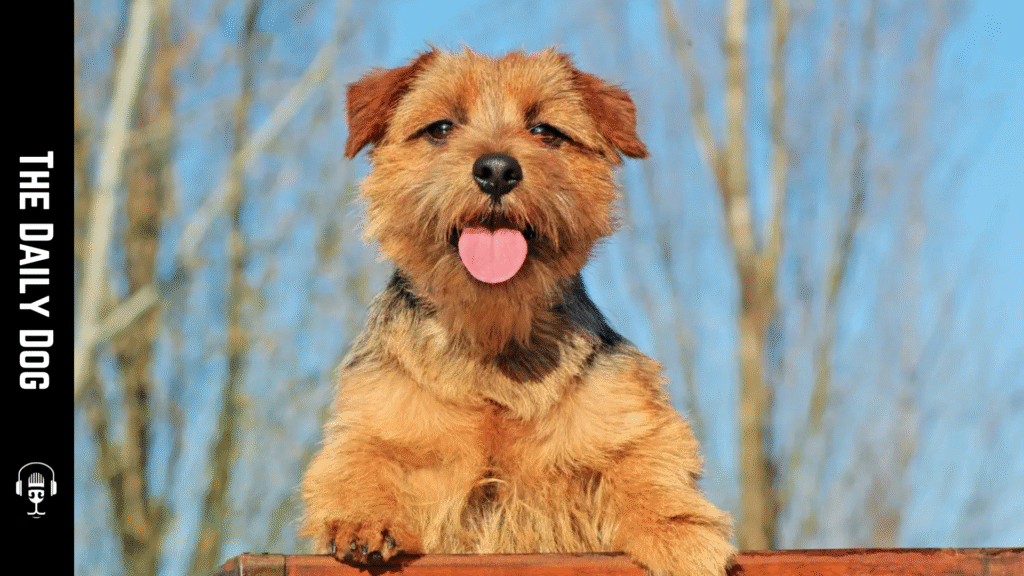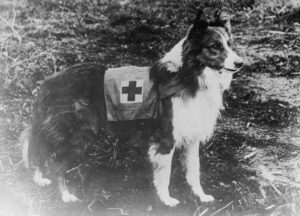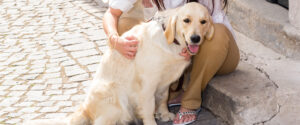The Norfolk Terrier stands out in the canine world with a distinctive blend of fearless confidence and approachable charm. Bred to be a small, sturdy hunter, this breed carries a big personality in a compact frame. Whether you’re a first-time dog owner or looking to welcome a lively, loyal companion into an established household, the Norfolk Terrier offers a unique balance of spirited energy, affectionate companionship, and manageable care. In this article, we’ll explore what makes the Norfolk Terrier a standout choice, how to meet its exercise and training needs, and how to ensure a harmonious life together.
A Terrier with a Big Heart and Even Bigger Personality
Renowned for its bold demeanor and alert expression, the Norfolk Terrier is often described as a terrier with a heart as big as its bark. These dogs are typically affectionate with family members, forming strong bonds and thriving on daily interaction. They’re known for their curiosity, impressive resilience, and a sense of humor that endears them to households that value wit and playfulness. While their size may be compact, their spirit is unmistakably robust, and they relish activities that challenge both mind and body.
One hallmark of the Norfolk Terrier is its sociable nature. Although reserved with strangers at first, their loyalty and warmth tend to shine through once trust is earned. Early socialization is essential to curb any lingering timidity and to cultivate a well-rounded demeanor when meeting new people or navigating unfamiliar environments. With consistent exposure to different sounds, surfaces, and scenarios, Norfolk Terriers grow into confident, well-adjusted adults who remain friendly without being overly exuberant.
The Perfect Balance: Size, Health, and Longevity
For those seeking a dog that can happily share apartments or houses alike, the Norfolk Terrier’s size is a major advantage. Typically weighing in at 11 to 12 pounds (5 to 5.5 kilograms) and standing about 9 to 10 inches tall (23 to 25 centimeters), these dogs are portable, adaptable, and easy to manage. Their compact size does not compromise vigor; Norfolk Terriers possess a robust constitution and an agile build suited to playful exploration.
In terms of health, Norfolk Terriers are generally sturdy dogs. Like all breeds, they are predisposed to certain conditions, so responsible breeders screen for typical concerns and owners stay vigilant for early signs. Potential issues can include dental concerns, patellar luxation, and occasional eye or heart considerations. Regular veterinary checkups, a balanced diet, and structured exercise contribute to a longer, healthier life. Prospective owners should seek reputable breeders who prioritize temperament testing, health clearances, and responsible breeding practices to minimize inherited health risks.
A Daily Routine That Honors Energy and Intelligence
Norfolk Terriers are notably energetic and mentally nimble. Their day should blend physical activity with problem-solving tasks that keep their sharp minds engaged. A daily mix of short, brisk walks, interactive play, and training sessions helps burn off excess energy and prevents boredom. These dogs thrive on play that challenges them—think scent games, agility-style obstacles, and puzzle toys that reward persistence. Without adequate stimulation, Norfolk Terriers can become vocal or digressive, seeking outlets for pent-up energy.
Despite their energy, these dogs are adaptable to a range of living situations. In a busy household, short sessions throughout the day can be more effective than long, single bouts of exercise. This approach helps maintain focus and reduces the chances of restlessness. Outdoor play should always be supervised, especially given their predatory game instincts and curiosity about new scents and textures.
Training with a Focus on Positive Reinforcement
When it comes to training, the Norfolk Terrier responds well to positive reinforcement techniques. Consistent, patient instruction builds trust and accelerates learning. Short, frequent training sessions tend to be more successful than lengthy, infrequent ones. Because this breed enjoys mental challenges, incorporating clicker training or treat-based rewards can help maintain enthusiasm and momentum.
Early socialization is again important, expose the dog to a variety of people, animals, and environments during its formative months. This practice helps the Norfolk Terrier become confident in different settings and reduces the likelihood of negative reactions to new stimuli. A structured routine, clear boundaries, and fair consequences reinforce good behavior without eroding the dog’s natural enthusiasm.
Grooming and Care: Simple, Manageable Maintenance
The Norfolk Terrier offers a practical grooming routine that suits busy lifestyles. Their short, wiry coat requires regular brushing to remove loose hair and minimize shedding. A weekly grooming session is typically sufficient, with more frequent brushing during seasonal shedding periods. Occasional trimming around the ears, paws, and sanitary areas helps maintain a neat appearance. Bathing can be done as needed, generally not too frequently unless the dog becomes dirty during outdoor adventures.
Dental health, nail trimming, and ear care should be part of the routine. Just as with other small breeds, keeping teeth clean supports overall health and helps prevent periodontal disease. Regular nail trims prevent overgrowth and accidental scratches to family members or furniture.
Social Harmony at Home: Family, Guests, and Other Pets
Norfolk Terriers tend to flourish in households that value companionship and structured routines. They often form strong bonds with one or two key family members yet remain affectionate toward others in the home. Proper socialization helps them stay comfortable around guests and new situations. When introducing a Norfolk Terrier to a home with other pets, gradual, supervised interactions are essential to establish a peaceful dynamic. While they’re generally good with calm, well-mosed dogs, their strong prey drive may need monitoring around smaller pets.
Travel and adaptability: Norfolk Terriers adapt well to various living arrangements, provided they receive enough daily activity and mental stimulation. For families that move frequently or travel, the breed’s small size makes transport more convenient, yet planning for consistent routines, training, and enrichment is still crucial to keep stress at bay.
Choosing the Right Norfolk Terrier for Your Home
If you’re considering adding a Norfolk Terrier to your family, seek out breeders who prioritize temperament and health. Ask about lineage, health clearances, eye and heart screenings, and any history of genetic concerns. Interview breeders about socialization practices and the puppy’s early environment, ensuring a strong start for your future companion. Adopting from a rescue or shelter is also a wonderful option; many Norfolk Terriers in need of homes thrive with patient, loving families.
Cost considerations: Beyond the initial purchase, ongoing expenses include quality food, regular veterinary care, toys, enrichment activities, and grooming supplies. Prospective owners should budget for these recurring costs to maintain the dog’s health and happiness over its lifespan. With a typical lifespan ranging from roughly 12 to 15 years, the Norfolk Terrier rewards patient, consistent care with a loyal, uplifting presence.
The Norfolk Terrier’s Role in Modern Living
In today’s bustling households, the Norfolk Terrier remains a versatile companion that complements an active lifestyle. They excel in urban apartments as long as their exercise and mental stimulation needs are met, and they bring a sense of playfulness that brightens days. Their curious nature lends itself to family-friendly adventures, whether exploring a local park, hiking trail, or a new walking route. The breed’s protective instincts, coupled with a friendly demeanor, make them attentive watchdogs without becoming overly aggressive. This balance is part of what makes them a popular choice for families and individuals who want a dog with personality, charm, and dependable temperament.
A Lasting Bond Built on Trust and Joy
To partner with a Norfolk Terrier is to embrace a companion who thrives on connection, activity, and shared moments of joy. They reward consistent care with lively affection, humorous antics, and unwavering loyalty. The key to a thriving relationship lies in predictable routines, positive reinforcement, and ample opportunities for physical and mental engagement. When you invest time in training, socialization, and daily enrichment, you’ll discover a loyal friend who remains engaged, curious, and ready for the next adventure.
Conclusion: A Small Breed with a Big Presence
The Norfolk Terrier embodies a remarkable combination of vigor, warmth, and resilience. Its compact size makes it an accessible choice for many homes, while its spirited personality ensures there is never a dull moment. With thoughtful care, proper training, and a loving environment, this breed can thrive as a devoted family member, a confident companion for solo owners, or a cheerful presence in a busy household. If you’re seeking a dog that blends fearless playfulness with affectionate companionship, the Norfolk Terrier deserves a thoughtful and enthusiastic look.
Call to Action
If you’re eager to enhance your dog’s training journey, listen to our podcast, Dog Works Radio for training tips and tricks from top trainers that have worked with over 3000 clients at https://dogworksradio.com.










